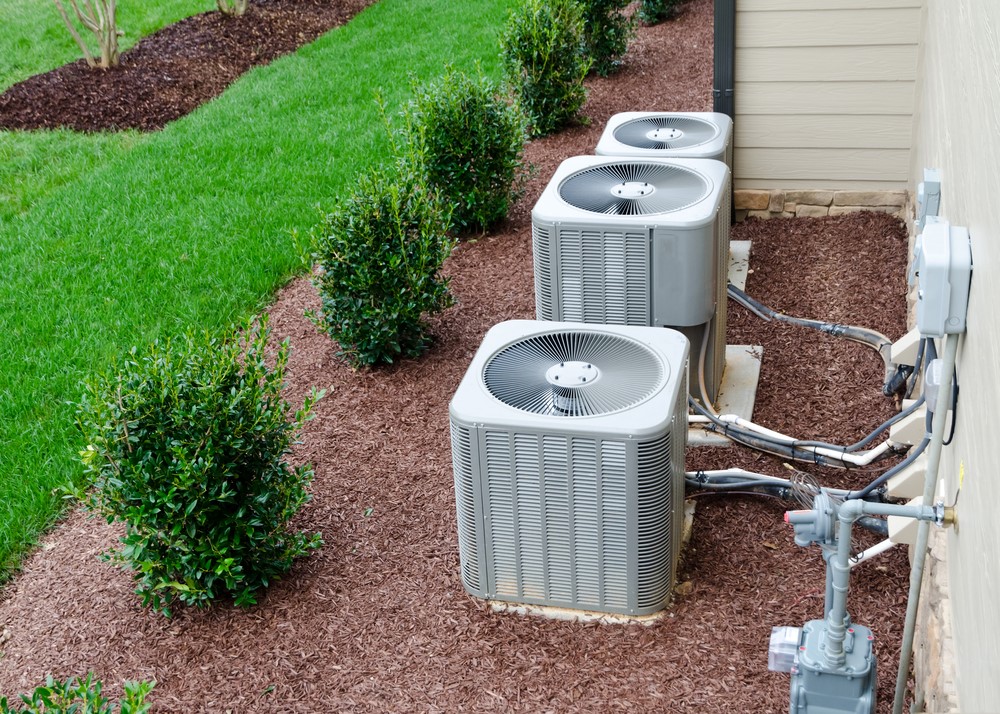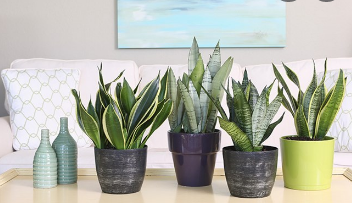Although it is advised against keeping plants in air conditioning. Because the cool air created by air conditioners makes us feel comfortable, we can’t help but have plants in our living spaces.

As a matter of fact, some plants are more vulnerable to the harmful effects of AC than others. Some people enjoy cold climates, while others thrive in hot climates; some people prefer humid environments, while others prefer dry environments. Therefore, the plant species is the key factor in the solution.
87 percent of US households have air conditioning, with central systems making up 75 percent of those, according to the Energy Information Association.
In this post, I’ll address several beliefs and worries about how an air conditioner affects plants and discuss what you can do to make sure they thrive in these conditions.
Table of Contents
How To Take Care of Plants in an Air-Conditioned Room?
Plants under air conditioning need to be kept out of the way of the vent in order to be properly cared for. Additional methods for keeping plants warm and preventing them from drying out rapidly include delivering moisture in the form of mist and, in some situations, completely enclosing the plant.
Our selfless buddies are the plants. So, for the sake of your plants, do pay them a little attention by doing the appropriate actions.
- To assist them recover from the moisture that the cold air has drained from them, mist your plants every day. By doing this, you may be sure that your plant is adequately watered and hydrated. Do not overwater or oversaturate roots as this might cause root rot.
- Up until their leaves come into contact with the blast of icy air, plants flourish in air-conditioned spaces. In order to prevent your plants’ leaves from drying out, move them as soon as you see that they have become yellow or brown.
- Mulch the soil surrounding your plant. It will safeguard the plant’s roots.
- Every day, dust off your plants. Take the pot’s shredded leaves, flowers, and buds out. Its application aids in maintaining healthy plants free from pests and disease.
- Temperatures between 65 and 80 degrees Fahrenheit during the day are comfortable for plants. But during the evenings, maintain it between 55 and 65 degrees.
See our piece on where to keep plants safely at home.
How Close Can Plants Be To an Air Conditioner?

Plants in a home or office environment might suffer from cold air. Nevertheless, not all air-conditioned spaces are bad for plants; the best method to prevent damage is to give the plants some room.
Succulents and ferns, for example, can withstand exposure to low temperatures and still flourish under those conditions.
However, when there is more than a slight coolness in the air, most houseplants or tropical plants don’t like it.
Plants are under risk because of our comfort. While seated too close to your air conditioner, you might like the cool breeze, your plants do not.
Its leaves may start to wilt and fall off due to the chilly air jet.
Depending on the size of the room, the type of plant you are cultivating, and whether it is an indoor or outdoor plant, the distance between an air conditioner and your plants will vary.
According to conventional recommendations, there should be at least 6 feet between your plants and the AC vent.
Plants cannot stand the way the vent’s icy air flows through them.
Selecting plants that can resist high temperatures is crucial since, generally speaking, the higher the temperature range and difference between an A/C and a plant, the greater the effect on the plant.
Remark: Take into account relocating the plants to a different area of the space or into a room without an AC risk.
See our in-depth article on how may fans stress plants for more information.
How Does AC Affect Plants?
Other important considerations should be made in addition to the site.
Temperature and humidity play major factors in plant growth. However, AC falls short in this area for the plants.
Here is what transpires:
Humidity:
Typically, a humidity level of between 55 and 75 percent is ideal for plant growth. The air that an air conditioner emits is extremely dry and drying. Plants’ stored moisture in leaves is dried off by it.
Low humidity also causes dry soil and brittle foliage since it deprives them of moisture.
Plant cells frequently freeze when there is insufficient humidity, which interferes with the absorption of nutrients and water by your plants.
Immature flower buds fall off as a result, and leaves begin to droop. Desiccation often affects the vegetation.
Amazon’s Geniani portable humidifier offers the perfect level of ambient humidity for strong plant development. Clicking here will take you there.
Temperature:
Plants are severely harmed by sudden changes in temperature. The chilly weather hinders plant growth and frequently causes plant death as well.
The rate of respiration and photosynthesis are also impacted by temperature; in both cases, the rate of oxygen and carbon dioxide uptake is slowed.
Cold Air:
Dormancy in plants can be induced by cold air, which slows down the majority of their biological processes. Similar occurrences are seen in plants when the winter season approaches.
The plant foliage is severely damaged and harmed by the cold air jets. By slowing down plants’ enzyme activity and transport system, it limits their ability to absorb nutrients.
Additionally, this chilly air depletes plants’ energy and even kills their living tissue, the Xylem.
Best Plants For Air-Conditioned Rooms:

Indoor or outdoor plants can clean the air and enhance the aesthetics of the surroundings.
However, not all plants make comfortable neighbors for air conditioners. We have developed a list of plants that can thrive even in an air-conditioned space for your convenience.
- , Zamioculcas zamiifolia
- (Mother-in-tongue) law’s Snake Plant
- Planta de monsta
- Swiss-cheese plant or rubber plant
- Pothos
- Cactus Pear
- Insect Plant
- Calm Lily ( Flowering plant)
- Palm Parlor
The aforementioned plants all require minimal upkeep. They can adapt to any kind of surroundings and are forgiving.
Most of them can withstand drought. Additionally, they can thrive in dim light and perhaps complete darkness.
They keep the air clean and breathable even though they just require a minimal amount of your care and attention.
If at all feasible, choose plants with big leaves. They are more resistant of temperature changes brought on by HVAC systems and are better adapted to your AC room.
How To Protect Plants From Cold Air-Conditioned Air?
Small plants are sensitive to variations in temperature, humidity, and other environmental factors.
Move the plant
The first step in safeguarding the plant will be to move it out of the direct path of the chilly, air-conditioned air.
The air that blows directly into the AC vents is the coldest air. The likelihood that the plants will freeze and enter dormancy decreases when they are not in this path.
Enclose the plants
You may easily use a glass container, similar to a terrarium, to maintain your plants in a warm, humid environment to protect them from these creatures.
The fact that the water you use on your plants is recycled here is its best feature.
That is all you need to bear in mind if you are considering using plants to decorate your air-conditioned room.
Use a Humidifier
You can assist your plants retain more moisture, which is good for their growth, by increasing the air’s humidity.
A humidifier can provide plants with water in the form of mist. The plants don’t dry out and wilt as a result of this.
Increased air humidity will stop soil from drying up too rapidly, reducing the need for longer watering periods.
Ensure the right humidity level for wholesome plant development. By clicking here, you can search Amazon for the best humidifier.
The Takeaway:
Many plants are susceptible to chilling injury, often known as “frostbite,” which can harm the foliage, buds, flowers, branches, and even the roots.
Some plants may withstand brief exposures to modest amounts of cold air; however, prolonged exposure will harm the plant.
While most houseplants and tropical plants dislike the cold, plants with leaves, such as ferns and succulents, can typically live in air conditioning.
Protect your plants from it as a courtesy. Sometimes a small bit of security is all that is required.
